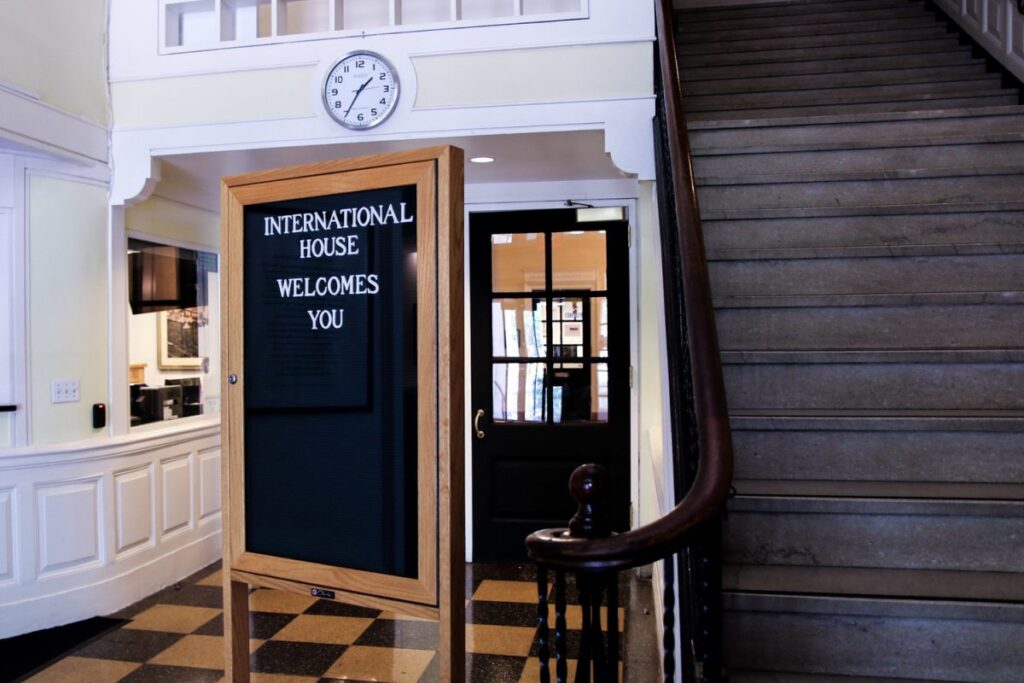
The Peer Counseling Program at I-House
One thing our residents often do not know until they arrive is that International House offers a free and robust suite of support services to all resident members of the I-House community. Under the auspices of the Global Health & Wellness Services (GHWS) office and led by its director, Lorraine Pirro, MA, LCSW, our team is available to assist residents with any topics or concerns they may experience. Topics include mental health, fitness and nutrition, and issues specific to navigating in environments that are academically rigorous, intercultural, and globally diverse.
A key part of the program is the recruitment and training of peer counselors from within the current cohort of residents. Says Pirro, “Our resident community is unique, with many students facing the stressors of adjusting to studying and working in New York City, or finding employment, internships or OPT sponsorships [a type of work authorization for foreign students]. Peer counselors can relate especially well.”
Peer counselors receive training to offer a listening ear to other members, provide various methods of support, and participate in initiatives to reduce the stigma around help-seeking that is present in many regional cultures.

Says Pirro, “Becoming a peer counselor is an exciting opportunity for residents to contribute to the well-being of their fellow residents and receive hands-on training that complements and enhances their academics.”
The application process is quite rigorous, with eligibility exclusive to residents studying or employed in mental health concentrations such as advanced clinical social work, clinical psychology, mental health counseling, or psychiatry. The training provided to the peer counselors may include mindfulness-based stress reduction, CBT (Cognitive Behavioral Therapy) case formulation, running DBT (Dialectical Behavior Therapy) skills groups, guided meditation, motivational interviewing, trauma-informed care for PTSD (Post Traumatic Stress Disorder), psychodynamic work, or tools for supporting the LGBTQIA community and marginalized groups. The ideal candidates for this fellowship, says Pirro, are scholars “who have a curiosity of how therapeutic modalities may be adapted to an international community.”
Additionally, peer counselors also play an important role as liaisons and advocates in health emergencies. If a member becomes ill, with their permission, peer counselors may play a role in contacting friends and family, visiting the person while in recovery, or assisting with routine tasks in the “outside world”— those that prove monumental when one is ill, like retrieving a notebook, computer, or a much-needed contact address.
Says Pirro, “It’s important that our residents know they have an entire support network here at International House—and for those who are studying in the field of mental health, serving as a peer counselor on the Global Health and Wellness Services team is a wonderful opportunity to contribute to the community in meaningful ways that have compassionate and consequential impact.”